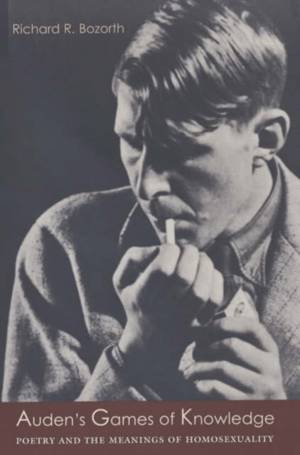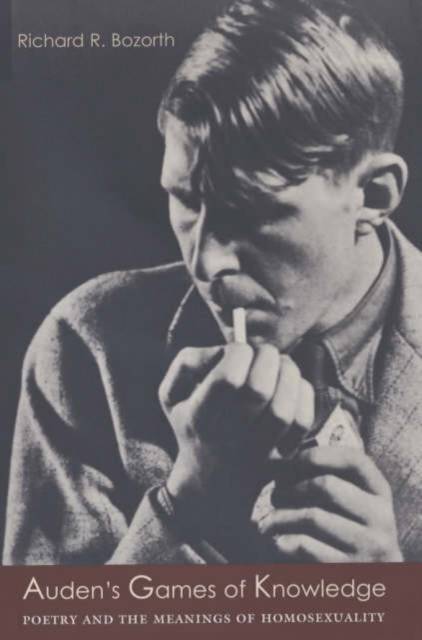
- Retrait gratuit dans votre magasin Club
- 7.000.000 titres dans notre catalogue
- Payer en toute sécurité
- Toujours un magasin près de chez vous
- Retrait gratuit dans votre magasin Club
- 7.000.0000 titres dans notre catalogue
- Payer en toute sécurité
- Toujours un magasin près de chez vous
61,45 €
+ 122 points
Description
The first full-length consideration of Auden as a homosexual poet, this volume shows that Auden's career was tied to a process of gay self-interrogation unparalleled in modern poetry and argues that he was driven by a powerful yearning to comprehend the psychological, political, and ethical implications of same-sex desire.
Auden's theories about poetry in the 1930s and after reflected an intense concern with how to write publicly as a homosexual poet. That struggle was made manifest in his love poetry, which Bozorth argues constitutes a kind of "erotic autobiography" exploring the distinct challenges of homosexual love. Bozorth's approach is manifold, examining the poet's engagements with avant-garde poetics, gay subculture, psychoanalysis, leftist politics, and theology. This book proposes that from his early fascination with secret agent and trickster figures to his later theories of poetry as an I-Thou relation, Auden viewed poetry as a fictional but primal erotic encounter with the reader.Spécifications
Parties prenantes
- Auteur(s) :
- Editeur:
Contenu
- Nombre de pages :
- 320
- Langue:
- Anglais
- Collection :
Caractéristiques
- EAN:
- 9780231113533
- Date de parution :
- 01-08-01
- Format:
- Livre broché
- Format numérique:
- Trade paperback (VS)
- Dimensions :
- 152 mm x 229 mm
- Poids :
- 526 g

Les avis
Nous publions uniquement les avis qui respectent les conditions requises. Consultez nos conditions pour les avis.






